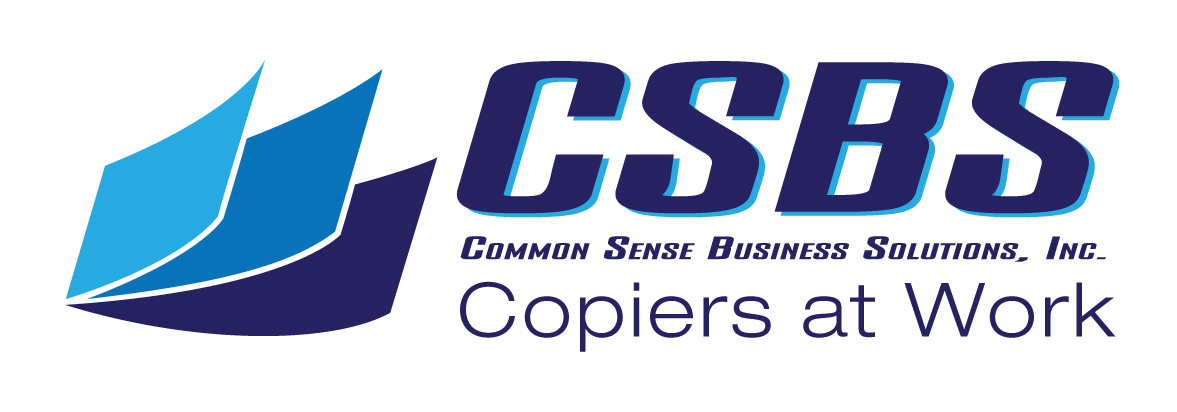Copier Lease vs Buy Analysis
The Differences Between Purchasing and Leasing
A complete guide to help you through the decision making process when getting a copier for your business.
Highlighting the Differences between Purchasing and Leasing a Copier -What Every Business Owner Should Know
A frequently asked question is whether it makes more sense to purchase a business copier or lease a business copier. And, as you can imagine, the answer to this question should always be based on the specific circumstances and preferences of a given individual or company.
Therefore, the purpose of this guide is to illuminate some of the distinctions between the two options and to raise some points of consideration for each individual or company to weigh.

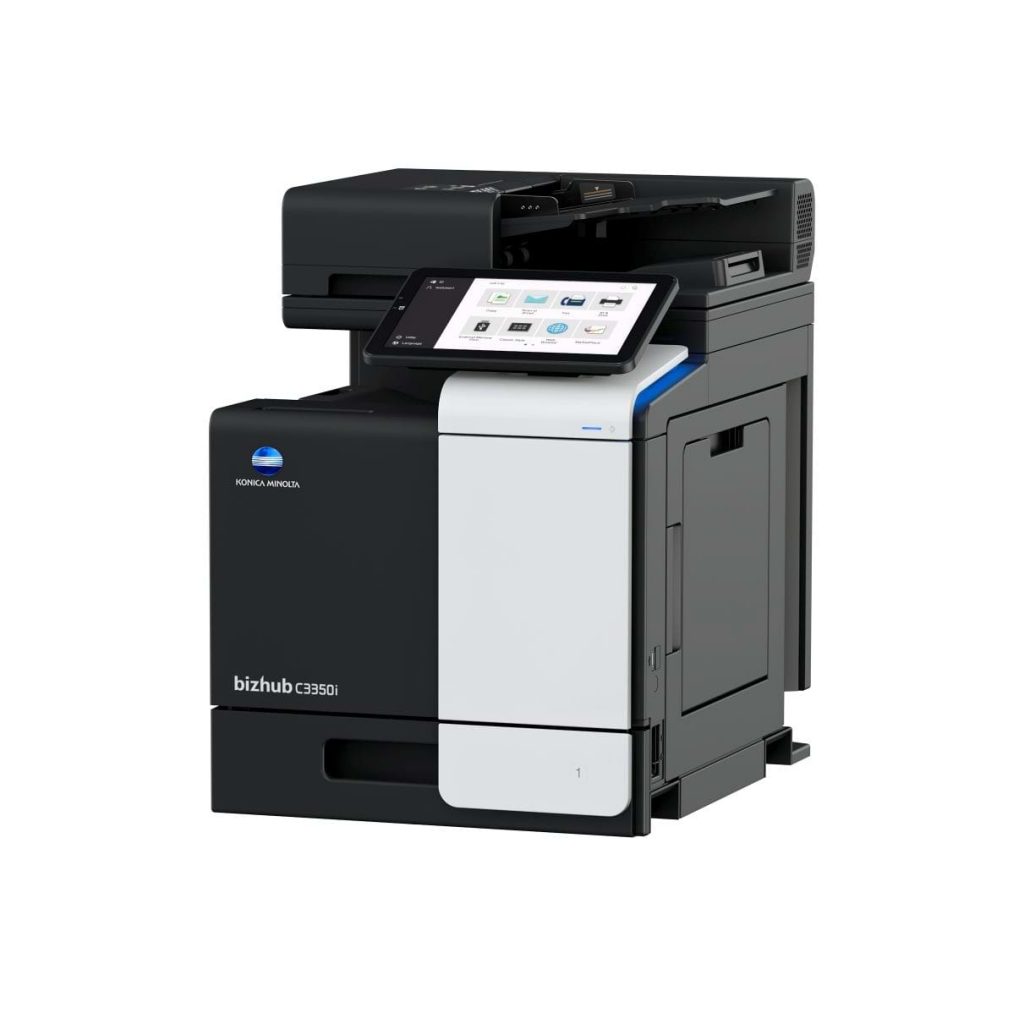
Benefits of Leasing Business Copiers
So, let’s start by first exploring some of the relative benefits of leasing a copier.
No Out of Pocket Expense
When leasing a copier there is generally no down payment or any form of out-of-pocket expense which helps to preserve a company’s cash flow. In almost all cases lease agreements require no down payment and usually not even a first payment in advance. A customer simply agrees to a stream of payments that will begin several weeks after the installation of the machine.
Easy to Keep Up With Competitors
Leasing can enable your small business to acquire sophisticated technology, such as a fast, feature-rich Multifunction Printer (MFP) with a host of productivity-enhancing accessories that might be otherwise less affordable. The result: You’re better able to keep up with your larger competitors without draining your valuable financial resources.
No Depreciation Schedule
When leasing a copier there’s no need to monitor the depreciation cost over a five-year period which makes the administrative aspect of tax planning more streamlined. When you purchase a copier you can deduct the depreciation of the hardware. However, in most cases when leasing a copier, you can deduct all of the payments during the year they’re incurred because it is considered a pre-tax business expense.
Copy Servicing
Whether you choose to purchase or lease, your options regarding maintenance agreements are the same. Regardless of whether purchasing or leasing you can set up an all-inclusive maintenance agreement that will cover any and all service, parts, and supplies needed to maintain the copier. In summary, you will have the same service/ maintenance options whether you lease or purchase so this aspect does not need to enter into your decision of whether you choose to purchase or lease.
Consistent Operation Expense
When leasing a copier you have the benefit of a consistent operating expense that remains the same over the entire lease term making for easy and accurate budget forecasts.
Benefits of Purchasing Business Copiers
Let’s now explore some of the relative benefits of purchasing a copier.
No Monthly Payment
When you purchase a copier outright one of the benefits is that you have one less monthly invoice and monthly payment to process. When leasing a copier you will have to process and pay a monthly lease invoice each month.
No Finance Charges or Interest
When purchasing a copier you don’t have to pay the additional finance charges that are required when you lease the copier.
Tax Benefits
In many circumstances a company can write off the entire purchase cost of a business copier in the year that it was purchased without having to depreciate it over the five- year depreciation schedule. Please consult with your CPA or tax professional regarding the viability of this option for your specific company.
Eliminate Cost of Shipping Copier Back At the End of the Lease
Many companies are unaware that at the end of the lease term they are responsible to pay for the shipment of the copier back to the lease company that routinely can cost $400.00 to $800.00 or more. When purchasing a copier, of course, you eliminate that recurring cost. (Further in this guide you will find details on the requirement to ship back copiers at the end of a lease term. This is an important consideration when considering whether a lease or purchase is the right choice for you.)
Retain the Value of the Asset
When you purchase the copier you own it for the entire useful life of the equipment. When leasing a copier, however, you will typically upgrade to a new copier at the end of the lease term. Not only do you lose the residual value of the copier, but – as noted previously – you have to pay to ship it back to the lease company.
Flexibility to Make Changes
Many experts suggest that leasing provides you with the flexibility to easily upgrade to a newer or higher-end machine. These same experts suggest that this is not an option when purchasing a copier. The opposite is actually true. When you own a copier you have the flexibility to trade in your existing copier and use the trade-in value to offset the cost of a new machine. When leasing, however, there is always a significant penalty for early buyout or early termination. In addition, upgrading to a new or different machine prior to the scheduled end of the lease term means you have to satisfy the buyout first. The summary of this information is that when you own your copier, you always have the flexibility to make a change any time you want and when you lease a copier you have constraints and the potential for financial penalty should you wish to upgrade in the midst of an existing lease term.
Extend the Useful Life of Copier After Initial Purchase
When purchasing a copier you can continue to use the copier as it is functioning and meets your needs. Many companies use purchased copiers for six or seven years or longer (the average lifespan of a copier that is purchased is 72 months.) Most copier leases, on the other hand, are for either 36 or 60 months. In the vast majority of cases companies simply roll from one lease to the next lease. Consequently, they are always paying the full cost plus finance charges for a new copier every three or five years. In fact, as outlined above, the average leased copier has a total lifespan of just 42 months.
When comparing the benefits and downsides of either purchasing or leasing a copier, the single biggest factor is often cash flow. Will your company benefit more by retaining its current cash flow by choosing a “zero out-of-pocket lease”, or would you benefit more by purchasing the copier and avoiding the finance charges, the shorter lifespan of the equipment and the burden of one more monthly payment to manage each month?
In every small business office, printers and copiers are virtually standard equipment. A stand-alone business copy machine is a regular fixture and probably one of the most frequently used machines. But copiers wear out or no longer meet the growing demands of a business and must be replaced. So, again the question: Do you buy one outright, or opt for a lease?
All things considered, most small businesses would be hard-pressed to purchase a new copier. The average cost of a commercial color copy system is $6,300.00 whereas the average lease payment for that same copier on a 60 month lease is just $120.00. Retaining the valuable commodity of cash on hand is the primary reason that nearly 85% of commercial business copiers are leased.
Copier Lifespan on Leased Copiers Compared to Purchased Copiers
The average copier that is purchased yields a usable lifespan 54% longer than the average lifespan of a copier that is leased. This means companies that lease are paying more for the use of a copier in their businesses in the overwhelming percentage of cases. An important statistic in support of this claim is the average purchased copier has a usable lifespan of 78 months whereas the average lifespan of a leased copier is just 42 months. In examining this further we learn that over 90% of all leases are upgraded at the end of the lease term regardless of the length of term and regardless of the condition of the equipment at the end of term. The overwhelming majority of copier leases come with either a 36 month lease term or a 60 month lease term and 90% of these leases are upgraded at or before the scheduled end of term.
What does all this mean? When it’s all said and done, the average lifespan of a copier lease is just 42 months. A very important note from the author is that most companies would benefit from a 60 month lease term compared to a 36 month lease term because we’d expect any copier to perform well for at least 60 months and there is no compelling reason to upgrade after just 36 months. Statistically, over 90% of leases are upgraded at the end of term regardless of whether that term is 36 or 60 months. Therefore, companies that lease for 36 months are paying 40% more for use of their copiers than companies with a 60 month copier lease and companies leasing for 36 months are paying over twice as much as the average company that purchases a copier!
In summary, companies that lease, pay for a new copier every 42 months on average whereas the average useful life of copies that are purchased is 78 months. A longer product lifespan can be interpreted as good or bad depending on each company’s situation;
The upside to getting a new copier every 42 months is that you’re consistently working with newer, more reliable equipment which can yield greater productivity, less downtime for service and less compatibility challenges than one would expect with older equipment. The downside to getting a new copier every 42 months is that you’re paying more money for the use of copier over the course of time. No matter how we spin it, paying for a new machine every 42 months is more costly than paying for a new copier every 78 months. It’s up to each company to weigh the value of cost vs. more frequent updates to newer technology.
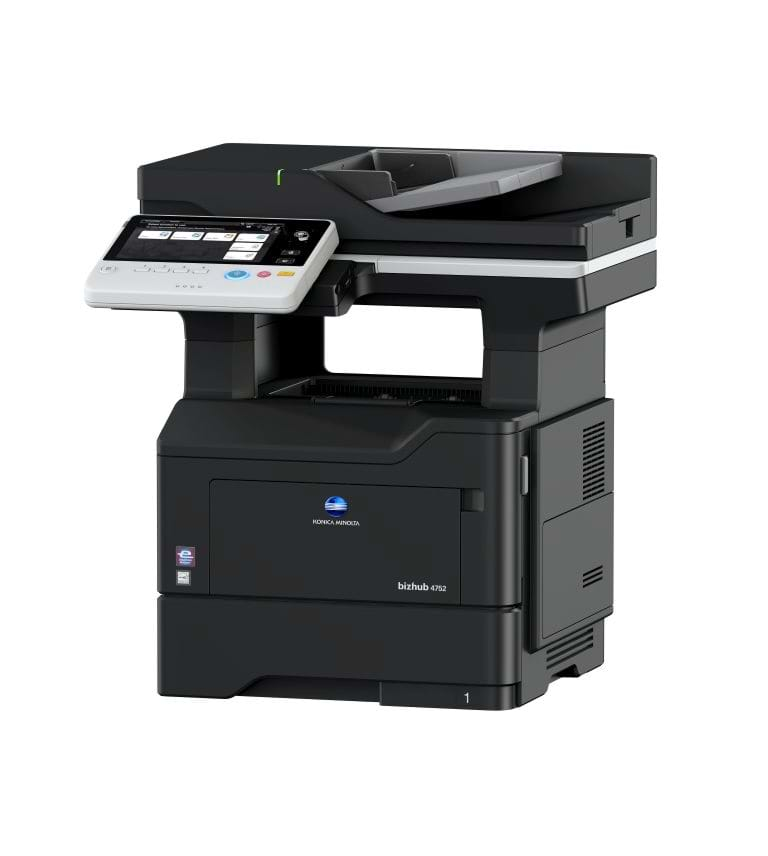
What to Look For in a Good Copier Lease
You may already have a specific brand or model in mind as you make your purchase decision. Before you commit to a particular copy machine, however, you and your company will benefit by conducting a brief “cost and benefit analysis.” The following seven functionalities of commercial business color copy systems are key deciding factors for making the right choice. Those seven functionalities are: Type of Lease, Type of Buyout Option, Number of Years on the Lease, Flexibility for Upgrading, Leasing Terms & Conditions, End of Lease Options, and Additional Costs Incurred.
Type of Lease
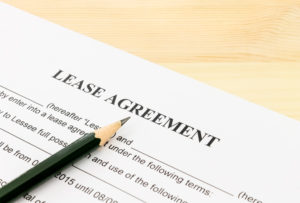
READ MORE
There are essentially two options available when leasing copiers: A $1.00 buyout option lease also known as a capital lease or a Fair Market Value lease also known as an operating lease.
A capital lease with a $1.00 end of lease buyout option is treated much like a loan with the equipment accounted as an asset on your balance sheet. This means that you benefit from tax depreciation and other similar benefits. One of the downsides of this type of lease is the time length of the contract – sometimes up to five years. You could find yourself still paying for an out-of-date machine long before your contract ends.
Operating leases with a Fair Market Value Buyout are more common with businesses. One advantage is Fair Market Value Copier Leases offer a lower monthly payment when compared to leases with a $1.00 buyout option. When you consider that approximately 90% of leases are upgraded at or before the end of term regardless of which buyout option you choose, it doesn’t make sense to have a higher monthly payment based on the buyout option that is rarely exercised.
Number of Years on the Lease
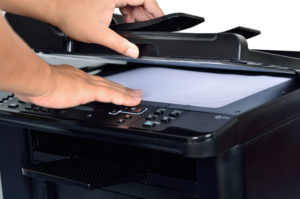
READ MORE
This can be somewhat confusing for business owners who want to lease and are considering an option to buy the copier eventually. Typically, the choice is either a fair market value (FMV option) or a $1 buyout option.
Fair market value (FMV) simply means that the equipment can be purchased at the end of the lease for the established fair market value.
That amount could be hundreds of dollars or more but as a rule of thumb, the fair market value of a machine at the end of the lease will equate to somewhere between 10% – 15% of the original principal value of the machine. Your copier account representative should be able to tell you the principal value of the machine prior to signing a lease agreement.
The $1 buyout option essentially means the copier can be purchased for one dollar at the end of the lease. To most, this would appear to be the preferred option. However, be aware that the monthly payments on FMV leases are approximately 15% lower than those with a $1.00 buyout option.
Since the majority of companies will want to upgrade to a new machine at or before the end of term regardless of the buyout option chosen, in most cases it makes sense to opt for an FMV lease with the lower monthly payment. In the event you do want to purchase the copier at the end of an FMV lease it is likely that the Fair Market Value buyout will be less than the 15% higher costs you would have incurred during the life of a lease with a $1.00 buyout option.
Type of Buyout Option

READ MORE
The preferred lease term is based strictly on each individual company’s specific circumstances. All copier leases can be set up for 24, 36, 48, or 60 months based on a customer’s preference. As with most equipment leases, or loans, the longer the monthly term, the lower the monthly payments. Because the monthly lease payment is going to lower the longer the term, in most cases it makes sense to choose the longest term in which the service provider will guaranty the serviceability of the given machine. Author’s note; In almost all circumstances I feel it makes sense for a company to choose a longer-term with a lower monthly payment as virtually every commercial color copy machine performs well for a minimum of 60 months.
Flexibility for Upgrading

READ MORE
Keep in mind the growing needs of your business. While you may only need a limited number of features and a machine with modest capacities today, if your business grows substantially, your copier needs may very well grow accordingly. While it is often possible to transfer your existing lease agreement to a larger machine, in most cases you will pay a premium to upgrade before the scheduled end of the term. Therefore if you have a legitimate reason to think your needs will change you will want to consider the length of the lease term accordingly.
Leasing a Business Copier? Beware of the Fine Print
Copier leases are amongst the simplest yet most misunderstood financial documents ever written. Although none of the terms or conditions are draconian in nature, if unaware, a customer can potentially be blindsided. Buried amidst of the single page of terms and conditions are several landmines that can potentially explode on unsuspecting lessees. In having provided Konica Minolta copier leases for the past 30+ years, I have literally seen hundreds of companies blindsided by terms and conditions of which they were unaware, Most notably;

Leasing Terms and Conditions for Business Copiers
Copier equipment leases are always non-cancellable regardless of the performance of the equipment.
While it is not anyone’s initial intent, the need to terminate a lease can be triggered by any number of events. Here are the most common reasons a company may wish to terminate or end a lease before the end of the original lease term.
1. Poor Performance or Subpar Service Experience
The most common reason a company may wish to “get out of a lease” early is because the machine is not performing to expectations or the customer is dissatisfied with the level of support provided by the service provider.
Be aware, that the service provider you worked within leasing your copier has little or no decision making authority when it comes to early termination of a lease agreement. Virtually 100% of copier leases are owned by a third party financial institution.
The terms and conditions clearly state that this financial institution is in no way responsible for the quality of service or performance of the equipment and that you, the lessee is solely responsible for fulfilling the entire term along with all terms and conditions of the lease agreement.
2. Changing Copier Needs
A company may find they no longer need the equipment, or that their needs have changed. This is why it’s important to choose a lease term that is consistent with your projected needs.
In the event that you do need to terminate a lease agreement prior to the scheduled end of term be advised that you will be responsible for fulfilling the entire stream of scheduled payments and or either returning the equipment to the lease company or paying the fair market value of the leased equipment.
Should you wish to upgrade to a newer machine, most lease companies will work with you to facilitate a “trade up” from an existing lease to a newer lease but be aware that you will be asked to sign a new, full-term agreement. Your copier account representative can share more information on how a mid-term trade up is facilitated.
Copier lease agreements do not automatically end once the initial lease term is completed.
Every copier lease agreement contains a condition stating the lessee is required to provide written notice to the lease company within a small, pre-determined window of time outlining the lessee’s intent to renew or terminate the lease agreement. The absence of this written notification will result in an automatic renewal term between 1 and 12 months resulting in additional payments. In the author’s 30+ years of experience, I have never seen a lessee successfully negotiate having this automatic renewal clause waived or forgiven. Therefore, it is imperative that the lessee sends timely, written notification to avoid an extension of terms and unplanned, additional monthly payments.
Generally, you will find language in the second paragraph of the copier lease terms that states something to the effect of “lessee must provide written notice of their intent to renew which must be received no sooner than 180 days and no later than 90 days from the scheduled end of the original lease term. Failure to send this notice will result in a renewal of the copier lease beyond the originally scheduled lease term The renewal period can vary from 1 to 12 months depending on the lease company.” The renewal period is non-negotiable and carries the same terms and conditions as the original terms including the need to send a letter to the lease company prior to the new maturity date.
If the letter is not sent and received during the small window of time leading up to the conclusion of the new extended term then the lease will automatically renew for an additional period of time consistent with the initial terms and conditions. In summary; Copier lease agreements don’t end on their own initiative. The lessee must provide written notice to the lease company instructing that the lessee does not want the copier lease to renew. Worthy of note is that this letter is not to be sent to your local copier service provider that delivered and services your copier. Instead, this letter must be sent to the lease company to whom you make your monthly lease payment.
End of Lease Options: Fair Market Value vs. $1.00 Buyout
Copier leases do not simply end at scheduled end of the lease term nor do they automatically result in ownership of the equipment. Even upon completion of all scheduled payments, the lessee does not own the leased equipment unless or until they exercise the buyout option in accordance to the terms and conditions of the lease. This is true whether you have a Fair Market Value Buyout Option or if you have a $1.00 Buyout Option. All leases require the lessee to notify the lease company of their “end of lease choice” at the successful completion of all scheduled monthly payments and the lessee’s responsibility to notify the lease company in writing during the notification period. The lessee has the option at their discretion to exercise any of the following options with written notice to the lease company as the lease approaches end-of-term; the available options are to 1) exercise the purchase option, 2) terminate the agreement and return the equipment, 3) Upgrade to a new copy system on a new copier lease agreement, 4) renew the existing agreement on a month to month basis. These four end-of-lease options are outlined below in more detail.
Option 1: Purchase Option
The lessee has the option to purchase the copier at the Fair Market Value which is determined by the lease company based on market value at the time the purchase option is exercised. Note that even though the lease company ultimately dictates the buyout price the lessee can frequently negotiate a more competitive price with the realization that the copier holds virtually no true value to the lease company at the scheduled end of term. The leverage exists in favor of the lessee when determining the market value and the lessee would always be well-advised not to accept the lease company’s first offer as to the copier’s value.
Option 2: Terminate the Lease and Return the Copier
The lessee has the option to terminate the existing lease agreement at the scheduled maturity date so long the lessee has provided the lease company with timely written instructions indicating this option. Note that the written instruction must be sent during the small wind of time outlined in the terms and conditions. This window is generally somewhere between 30 and 90 days prior to the maturity date of the original term. A significant point of note is that when the termination option is exercised it is the lessee’s obligation to have the copier shipped to the destination of the lease company’s choice. This destination can be anywhere in the United States. Shipping costs can frequently run from $400.00 to $800.00 depending on the size of the copier and the ship-to destination. See more specifics on the lessee’s shipping obligations further on in this blog.
Option 3: Upgrade to a New Lease with on a New Copier
In almost every circumstance, the lessee will receive an opportunity from their existing copier service provider to “upgrade” their current copier lease to a new lease that includes a new, upgraded copier model. In most cases, when the lessee chooses to upgrade to a new copier lease, the copier service provider will offer to work with your existing lease company to automatically terminate the existing lease to be replaced with a new lease on the new copier equipment. Statistically, over 80% of companies that lease a copier upgrade with the same copier service provider which may be seen as a testament that most lessees are satisfied with their leasing experience.
Option 4: Renewal of Existing Lease Option
The lessee has the option to renew the existing lease agreement for the same payment as is provided during the initial term of the lease. Should the lessee opt to renew the agreement there is no action to be taken as the existing lease conditions dictate this renewal in lieu of written notification instructing otherwise.
3 Additional Costs Many Lessees Incur When Leasing a Copier
Potential Cost #1
Lessee is required to pay to ship the copier back to the lease company at the conclusion of the lease
In the event that the lessee chooses to terminate the lease agreement, the lessee will be required to arrange and pay for shipping the copier to the destination of the lease company’s choice anywhere in the United States. Shipping a copier can be extremely expensive especially if the destination is out of state. Lease companies provide a list of preferred shipping companies, who will usually charge a premium rate to handle the shipping on the lessee’s behalf however the lessee is not required to use the lease company’s preferred shipper. Often, the lessee can make their own shipping arrangements at a cost significantly lower than that charged by the lease company’s preferred vendors. And if the lessee has arranged to lease or purchase a new copier, the lessee can often negotiate to have the vendor of the new equipment take on the shipping costs as an incentive to selling the new copier.
Potential Cost #2
Copier lease agreements have a clause that states the lessee will be charged a lease initiation fee for the setup of the lease agreement
The lease initiation fee is a one-time, non-negotiable charge that will be itemized separately on the first monthly lease statement. Generally, the lease initiation fee will range from $70.00 to $135.00. Many lessees are caught off guard when they see this charge on their initial invoice.
Potential Cost #3
Lessee is required to insure the copier they are leasing
When leasing a copier the lessee is required to add the lease company to their existing general liability insurance as the sole loss payee for the value of the copier. Otherwise, the lessee can be charged an insurance surcharge that is generally 6-8% of the monthly lease payment.
In most cases, the lessee’s insurance agent will mail the certificate directly to the lease company on behalf of the lessee. The potential issue is that many lessees either don’t have business insurance, or are not aware that they are required to provide their own insurance, and often end of paying a significant monthly insurance surcharge without it ever coming to their attention.

Summary
In summary, in the author’s opinion, none of the terms and conditions in a lease agreement are inherently unfair. However, it is always in your best interest to have a clear understanding of your obligations prior to entering into a copier lease agreement should you ultimately choose to lease a copier instead of purchasing one.
A business copy machine is a significant investment. Therefore, careful consideration right from the beginning is very important, and the purchase or lease of a new copier should be seen as a strategic operational decision. This is why it’s so important to choose your copier service provider as much for their ability to provide experienced consultation as it is to select a copier service provider simply by the brand they offer or the price they charge.

About Author
Ross Wiffler is the President and Founder of Common Sense Business Solutions and has helped thousands of Sonoma County businesses with their copier and printer needs since 1986. Ross has a passion for working with local businesses and strongly believes that supporting local businesses benefits the entire community. Under Ross’ leadership Common Sense Business Solutions is actively involved through ongoing support and equipment donations to various local non-profit organizations, serving as an active member of Sonoma County Go Local Cooperative, Santa Rosa Chamber of Commerce and the Next Chapter of BNI (Business Networking International).
Ross is a lifetime resident of Santa Rosa and truly enjoys living in Sonoma County, what he believes to be the greatest place on earth to live and raise a family. Ross is an avid backpacker, hiker and outdoor enthusiast and is committed to embracing and supporting environmentally friendly personal and business practices. Ross is a lifelong student of small business leadership, business to business sales and marketing and entrepreneurial studies. Ross continues to mentor young business owners in their quest to build local businesses of consequence that help to strengthen Sonoma County’s Business Community.

About Common Sense Business Solutions
Common Sense Business Solutions embodies what it means to be a local business by supporting our neighbors, supporting other locally owned businesses and playing an active role in the ongoing support of our community:
Common Sense Business Solutions cares for our environment and believes we owe more than just lip service in doing our part to preserve it. In our quest to protect and preserve the beauty of Sonoma County, California and our planet, we share ideas helping our business partners lower their carbon footprint in an affordable and socially responsible manner. We share common sense ideas on how to lower energy costs, save paper, reduce packaging waste and better utilize resources from an environmental perspective. Common Sense Business Solutions provides free environmental consultations to any company outlining areas to decrease their carbon footprint, because we believe that together we can make a difference.
Latest News & Resources
Visit our blog to get updates on resources and our products. We teach you how to use your office equipment and help you when you’re in the leasing and buying decision-making process. Explore any one of recent blogs below or click to see more.
Top 5 Trends in the Copier and Printer Industry
Copiers were once simply the large, ugly machines in the office that made poor quality copies, but that’s no longer the case. Today, copiers do much more than make copies: they print, fax, scan, collate, staple, and much more. Some are even capable of using media...
How to Choose the Best Office Copier Repair Company
When your copier goes down, it can bring some of your business’s vital processes to a halt. Even if it doesn’t, it’s going to impact how productive your team is. That’s why having a reliable copier repair company on speed dial is vital. They will ensure that your...
Why Should I Upgrade My Office Copier?
Technology is always changing, with new options and more energy-efficient methods hitting the market regularly, your office technology can quickly become outdated. This includes your copier. While it may seem like office copiers haven’t change that much, they actually...
